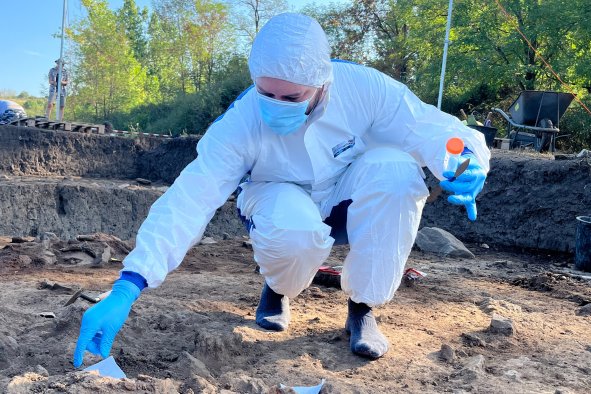Poor sleep in your 40s could make your brain age faster, new research suggests. The findings add to a growing body of evidence that sleep quality is closely linked to cognitive health, emphasizing the need to address sleep issues early in life.
Getting enough sleep is essential for our mental and physical well-being. It helps us consolidate our memories and aids physical recovery, and not getting enough has been shown to contribute to heart disease, obesity, neurodegenerative disorders and depression.
Yet, according to the Centers for Disease Control and Prevention, one in three adults in the United States reports not getting enough of it.
"Sleep problems have been linked in previous research to poor thinking and memory skills later in life, putting people at higher risk for dementia," Clémence Cavaillès, study author and researcher at the University of California San Francisco, said in a statement. "Our study which used brain scans to determine participants' brain age, suggests that poor sleep is linked to nearly three years of additional brain aging as early as middle age."
The study analyzed data from 589 individuals with an average age of 40. Participants completed sleep questionnaires at the start of the study and again five years later. They then underwent brain scans a further 10 years later.
By comparing brain scan data to questionnaire results with the help of machine learning, the researchers saw a significant difference between the brains of those who struggled to fall asleep compared to those who did not. After adjusting for factors like age, sex, high blood pressure and diabetes, the group with the most trouble sleeping had brains 2.6 years older than those who got the best quality sleep, on average.
Bad sleep quality, difficulty falling asleep, difficulty staying asleep and early waking were all linked to faster brain aging, especially in those who consistently showed poor sleep characteristics across the study period.
"Our findings highlight the importance of addressing sleep problems earlier in life to preserve brain health, including maintaining a consistent sleep schedule, exercising, avoiding caffeine and alcohol before going to bed and using relaxation techniques," Kristine Yaffe, one of the study's co-authors and a researcher at the University of California San Francisco and a member of the American Academy of Neurology, said in a statement.
"Future research should focus on finding new ways to improve sleep quality and investigating the long-term impact of sleep on brain health in younger people."
Of course, these findings were based on subjective sleep reports by the participants. Moreover, the data does not prove that sleep problems were responsible for this accelerated brain aging. However, it offers compelling evidence that sleep problems are closely linked to cognitive decline and aligns with existing research on the importance of sleep in brain development and maintenance in older age.
Is there a health issue that's worrying you? Do you have a question about sleep? Let us know via health@newsweek.com. We can ask experts for advice, and your story could be featured on Newsweek.
Reference
Cavaillès, C., Dintica, C., Habes, M., Leng, Y., Carnethon, M. R., Yaffe, K. (2024). Association of Self-Reported Sleep Characteristics With Neuroimaging Markers of Brain Aging Years Later in Middle-Aged Adults. Neurology, 103. http://dx.doi.org/10.1212/WNL.0000000000209988
Disclaimer: The copyright of this article belongs to the original author. Reposting this article is solely for the purpose of information dissemination and does not constitute any investment advice. If there is any infringement, please contact us immediately. We will make corrections or deletions as necessary. Thank you.



